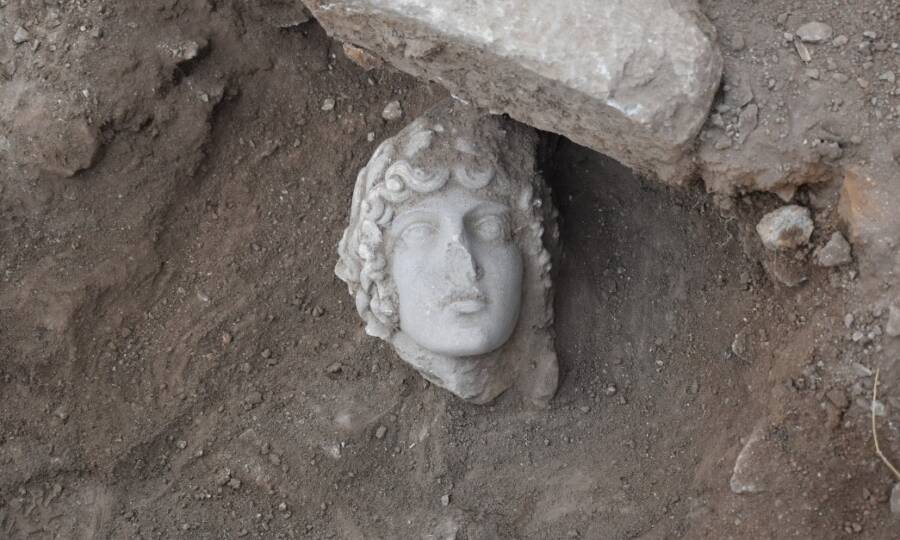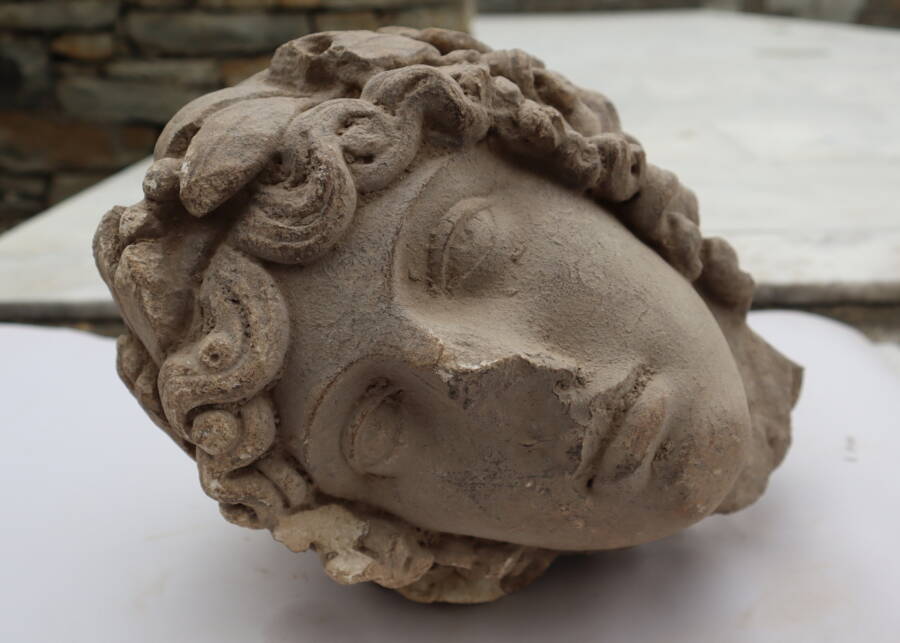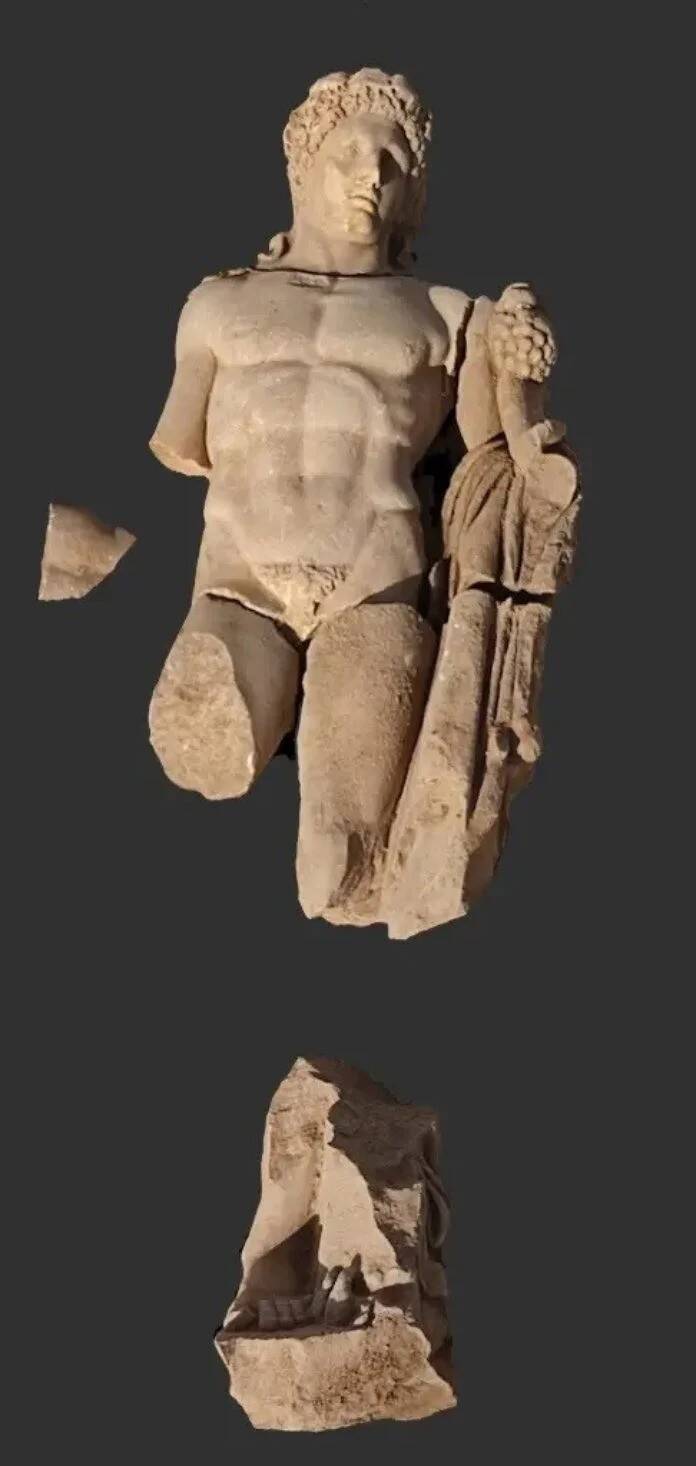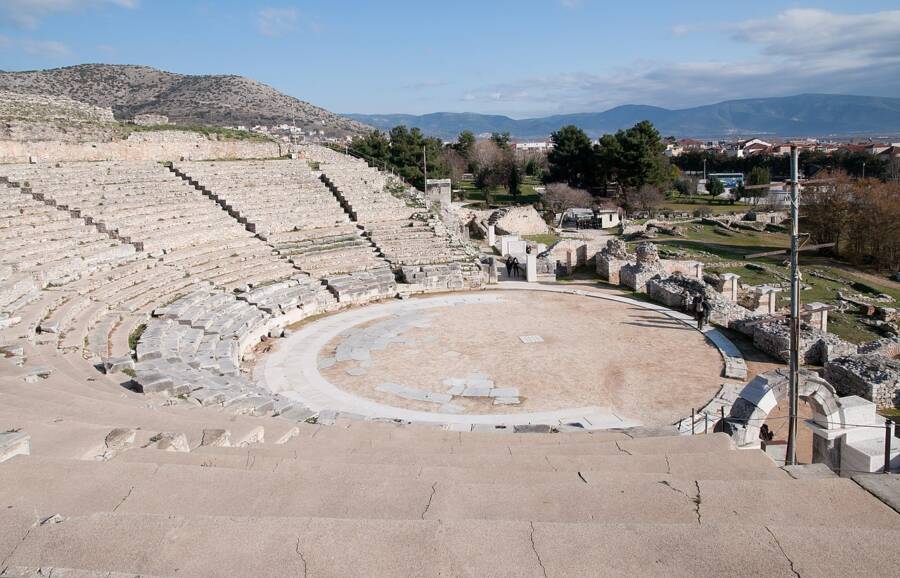Believed to have been part of a statue that adorned an enormous fountain, this Apollo head was found by archaeology students among the ruins of the historic city of Philippi.

Greek Ministry of CultureResearchers suspect that this marble statue once adorned a fountain that sat in the square of the historic city of Philippi.
While excavating at the ancient Greek city of Philippi, archaeologists found themselves face to face with the past when they came upon a marble head of the god Apollo.
This stunning piece of carved marble is about 1,800 years old and remains in fairly good condition. What’s more, it’s just the latest exciting find that archaeologists have made in this historic city.
Discovering The Head Of Apollo In Philippi

Greek Ministry of CultureThe statue is believed to have been built in the second or third century C.E., before being repurposed as an adornment for a fountain several centuries later.
According to the Greek Ministry of Culture, the marble head of Apollo was found in 2023 by a group of students from Aristotle University of Thessaloniki, led by Professor Natalia Poulos, during a long-term university excavation project at Philippi that began in the 1960s.
“The moment of the discovery was thrilling,” Anastasios Tantsis, an associate professor of Byzantine Art and Archaeology at the Aristotle University of Thessaloniki and a member of the excavation team, told All That’s Interesting in an email. “[The students] were really enthusiastic. We believe that even though these are moments of special importance for us too, sharing them with our students adds to the thrill.”
The head, with its crown and curly hair, was quickly identified as Apollo, the Greek and Roman god of archery, music, dance, poetry, and the Sun. Archaeologists believe that it dates back to the 2nd or early 3rd century C.E., and probably once adorned a grand fountain in the ancient Greek city.
The head was found during excavations east of the city’s southern main road (or decumanus) at the place where it met the city’s northern axis (Via Egnatia, an ancient road connecting Europe and Asia). Archaeologists had previously discovered a statue of Hercules at the site — with a lion hanging from his hand — which they believe also belonged to the fountain.

Greek Ministry of CultureThis statue of Hercules, which includes a club and a lion, was found at the site in 2022.
So what did the inclusion of Apollo and Hercules in the fountain mean? For now, archaeologists aren’t 100 percent sure.
“Although there might be evidence for the inclusion of Hercules in a Christian context (he chose virtue) there is no such evidence for Apollo,” Tantsis remarked to All That’s Interesting. “It is very early to determine the connotations of both figures in a medieval urban context. It is safe to assume that they were seen primarily as works of ancient (and certainly great) art attesting to historical and cultural continuity.”
In addition to the Apollo head, archaeologists also made other discoveries at the site. While excavating the area, they found the continuation of a road paved with marble, as well as a coin bearing the likeness of Byzantine Emperor Leo VI (who reigned from 886 until 912).
It’s no surprise that the recent excavations at Philippi offered up such exciting finds. The ancient Greek city has a long and rich history.
An Ancient City Filled With Historic Treasures
Originally a small colony called Crenides, the city of Philippi was founded in 356 B.C.E. by the Macedonian King Philip II, father of Alexander the Great. UNESCO states that it developed as a “small Rome” as the Roman Empire grew in strength.
It hosts both ancient Greek architecture like walls, gates, and a theater, as well as later Roman developments, including a forum, terrace, and temples. The city also became an important center of Christianity in the first century, after it was visited by the Apostle Paul in 49-50 C.E.

MrPanyGoff/Wikimedia CommonsPhilippi boasts both incredible ancient Greek and ancient Roman structures, including this public theater.
That said, Philippi fell into ruin after the Ottoman conquest in the 14th century. The site was more or less abandoned until the 20th century, when archaeological excavations in Philippi began in earnest.
These efforts began around 1914, were abandoned during World War I, and resumed in the 1920s. Between 1920 and 1937, archaeologists made a number of incredible discoveries in the ancient city including ancient baths, the city’s walls, a Greek theater, and the ancient forum.
A century later, Philippi continues to offer up ancient treasures in the form of the Apollo head and the statue of Hercules. Excavations at the ancient site will continue, and archaeologists will hopefully learn more about the fountain that was once adorned with Apollo and Hercules.
“The excavation will continue this summer,” Tantsis explained to All That’s Interesting, “and we hope to unearth further evidence about the structure embellished by these statues and the area it stood in.”
After reading about the 1,800-year-old head of Apollo found during excavations in the ancient city of Philippi, look through these fascinating facts about life in ancient Greece. Then, go inside the historical debate over whether or not the Trojan Horse mentioned in ancient Greek history was actually real.






